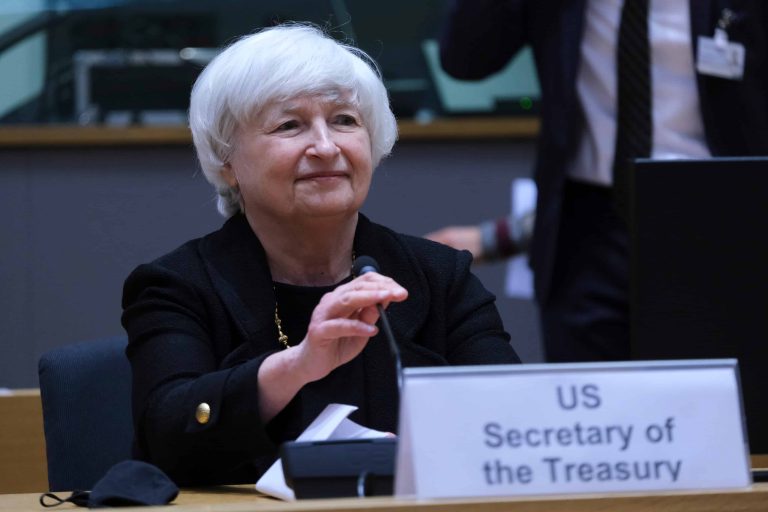In an interview with CNN’s Erin Burnett on Monday, Janet Yellen recounted eating at a restaurant chain in Beijing called Yi Zuo Yi Wang, a meal that had Chinese social media abuzz last month.
A post on Weibo, the popular Chinese blog platform, detailed what Yellen’s party ordered that day, including “jian shou qing, an unusual yet highly sought-after mushroom prized for its unique properties,” according to CNN.
Those properties can include hallucinations –– unless the mushrooms are cooked and prepared a certain way, which was the case when Yellen dined there.
“So I went with this large group of people and the person who had arranged our dinner did the ordering,” Yellen told Burnett, as quoted by HuffPost. “There was this delicious mushroom dish. I was not aware that these mushrooms had hallucinogenic properties.”
Yellen said that she “learned that later.”
“I read that if the mushrooms are cooked properly, which I’m sure they were at this very good restaurant, that they have no impact,” Yellen added. “But all of us enjoyed the mushrooms, the restaurant, and none of us felt any ill effects from having eaten them.”
The dish has been selling out in Beijing following Yellen’s diplomatic visit there last month.
Jokes aside, we are probably getting closer to the day when a cabinet official actually does talk about a hallucinogenic experience.
A growing number of politicians and policymakers have expressed a receptivity to changing laws surrounding psychedelics, particularly for therapeutic treatment.
Last month, President Joe Biden’s younger brother, Frank Biden, said that the president is open to psychedelic treatment options.
“He is very open-minded,” Frank Biden said.
“Put it that way. I don’t want to speak; I’m talking brother-to-brother. Brother-to-brother,” he added. “The question is, is the world, is the U.S. ready for this? My opinion is that we are on the cusp of a consciousness that needs to be brought about to solve a lot of the problems in and around addiction, but as importantly, to make us aware of the fact that we’re all one people and we’ve got to come together.”
But President Biden has also been reluctant to embrace outright cannabis legalization, which has concerned some of his fellow Democrats, including Rep. Alexandria Ocasio-Cortez.
Ocasio-Cortez said last month that she is concerned Biden’s position on marijuana could undermine her bipartisan effort to expand research into psychedelics.
“I believe the president has displayed a regressiveness for cannabis policy,” she said. “And if there’s a regressiveness toward cannabis policy, it’s likely to be worse on anything else.”
Despite that “regressiveness,” Biden took some of the strongest steps toward cannabis reform of any president in history last fall when he issued pardons for federal cannabis offenses.
“As I often said during my campaign for President, no one should be in jail just for using or possessing marijuana. Sending people to prison for possessing marijuana has upended too many lives and incarcerated people for conduct that many states no longer prohibit. Criminal records for marijuana possession have also imposed needless barriers to employment, housing, and educational opportunities. And while white and Black and brown people use marijuana at similar rates, Black and brown people have been arrested, prosecuted, and convicted at disproportionate rates,” Biden said in the announcement at the time.
In addition to the pardons, Biden said he was also “asking the Secretary of Health and Human Services and the Attorney General to initiate the administrative process to review expeditiously how marijuana is scheduled under federal law.”
“Federal law currently classifies marijuana in Schedule I of the Controlled Substances Act, the classification meant for the most dangerous substances. This is the same schedule as for heroin and LSD, and even higher than the classification of fentanyl and methamphetamine – the drugs that are driving our overdose epidemic,” Biden said.
